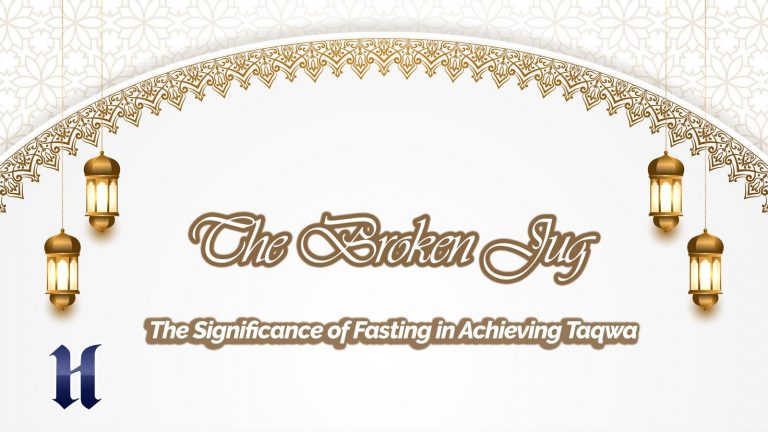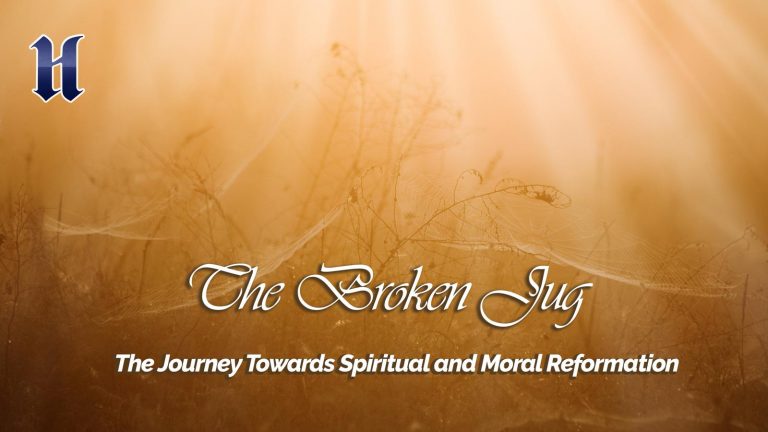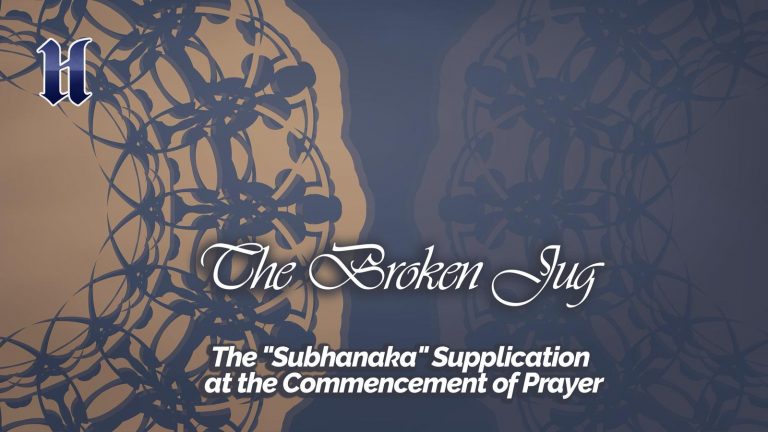Question: The noble Prophet, peace and blessings be upon him, stated that his supplications to God about his followers not being destroyed by a wholesale disaster and their not remaining constantly under others’ dominance were accepted, but the supplication about his followers’ not falling into discord and disunity was not accepted.[1] Could you elucidate the aspects that these points share and the messages they convey to us?
Answer: In order to educate believers, the Qur’an related many different stories about the lives of the Prophets. An important point relayed in these stories is the destruction of people who refused to believe in the Messengers that God sent to guide them. The people of Prophet Noah, were destroyed by a flood after they obstinately denied him and oppressed his followers.[2] The people of Prophet Hud (Eber in the Old Testament) were destroyed by an inauspicious storm;[3] the people of Prophet Salih by a terrible blast,[4] and the people of Sodom and Gomorrah were sunk into the ground.
Whether these acts of God were restricted to a certain region, or whether the destruction included all humanity, we do not know. However, when we consider the fact that the Prophets before the Pride of Humanity (Prophet Muhammad, peace and blessings be upon him) were each sent to a particular people, then it is possible to discern that every act of destruction was limited to that particular region. Therefore, if people did not believe in the Prophet sent to them and insisted on their unbelief and oppression, ultimately facing destruction, it was limited to that group of people. However, accordingly, as the seal of the Prophets was sent to all humanity then the entirety of those who refused to accept his message but insisted on denial and oppression should be destroyed.[5]
The Accepted Petition
It is for this reason that the Messenger of God, peace and blessings be upon him, supplicated so that his followers would not face such a wholesale destruction.
“But God would not punish them so long as you were among them; and God is not to punish them (or other people) while they implore Him for forgiveness for their sins” (al-Anfal 8:33).
This verse indicates that his prayer was accepted.
There are certain distinctive features that are unique to the Final Prophet, peace and blessings be upon him. One of these is that for as long as he spent his blessed life among his followers and led them, they would not face total destruction as befell peoples of the past. According to the apparent meaning of the verse, this truth is apodictic. It is also possible to infer the following implicit meaning from the verse: As long as the Prince of the Prophets lives in the hearts of Muslims, God will not punish them as He did earlier peoples; he will not sink them into the ground. If there is a sound Muhammadi spirit among the believers, just as God Almighty forgave the followers of the Final Prophet during his lifetime and after his demise, God will forgive and protect them until the end of the world.
In the rest of the world, it is also stated that another means of believers’ protection from destruction is realized by their asking for forgiveness. If Muslims ask for forgiveness immediately after committing sins, God will save them from misfortunes that could befall them from above, below, from the right and left; He will not sink them into the ground. In short, God Almighty accepted the Prophet’s prayer about Muslims’ not facing total destruction. The Qur’an stated this truth and history has evidently revealed this.
Temporary Periods of Subjugation in the Cycles of History
Secondly, the Final Prophet supplicated to God asking that Muslims’ not stay under the invasion of an exploitive state. God’s Messenger saw with his Prophetic sight that could reach the unseen, that believers would sometimes face invasion, but this would not continue forever. Some 4–5 centuries after his blessed life, Muslims faced successions of crusades. After that the Mongols came, invading Baghdad, the center of the caliphate, but none of these invasions became permanent. None of the invasions by the crusaders, the Mongolians, or by the oppressors and transgressors in later periods lasted. A day came and all were finished by God’s permission and grace.
The crusades, which seriously troubled the Islamic world, came up against Sultan Alparslan, Melikshah, Kilij Arslan and Saladin; all of them were repelled and left as they had come. Afterwards, with God’s permission, the Seljuks gained strength and served a very important mission concerning the fate of Islam for nearly two centuries.
Later, as the Seljuks became less effective, they were completely paralyzed by the Babai riots and their decline began. The small princedom of the Ottomans in the province of Söğüt, dawned on all horizons of the world, like a caterpillar metamorphosing into a butterfly. They served as a stronghold in north of the Islamic world and protected it. In the words of Malik ibn Nabi, if the Ottomans had not existed in its north, the Muslim world would not exist today. Maintaining a state in its prime for four centuries was not accomplished by any others in the history of humanity; neither by the Romans, nor the Chinese, nor the Indians or any others.
In our time, the Islamic world is suffering from invasions of a different nature. Where as in the past, invasions were realized by brute force, these days they are operated by means of pawns within the Islamic world. These pawns are administering the Muslim geographies. Tyrants with a nature that suits others’ purposes are selected and used to subjugate the Islamic world.
As has always happened in the past, and will happen again after this, people will gain their independence, with the permission of God, and the period of tyrants will come to an end. Who knows which ants will once more bring down the palaces of Pharaohs, and which mosquitos will make Nimrods fall flat on their faces. The noble Prophet petitioned God about this matter and God Almighty accepted his prayer and gave him the glad tidings that his followers will not remain under invasion forever.
The Source of Disunity: Human Weaknesses
Lastly, with his Prophetic sight which could reach the unseen, the Pride of Humanity saw that feelings of greed, envy, rivalry, ambition for fame, love of status and desire to be the center of attention would cause discord among his followers and bring them to loggerheads with each other. He entreated God to save them from such a danger but did not receive a positive reply because this is a direct test of individuals’ free will. Although God Almighty did not totally reject the petition of His beloved Messenger, neither did He decree that they would confront one another. God left believers’ living in unity to their willful choice. God did not create people as—forgive the expression—beasts, or not as trees to remain standing in peace when put side-by-side; He created them as human beings and endowed them with willpower. Hence, human beings must give their willpower its due and constantly struggle against their negative feelings such as jealousy, grudges, hatred, malice and intolerance, so that they can progress. In other words, the issue of maintaining concord and unity was not given to Muslims as an unmerited favor. On the contrary, God Almighty made Divine guidance and assistance on this issue conditional to their giving their willpower its due.
In this regard, if believers wish to make a consensus, agree with and embrace one another, they must open their arms to everybody in the same way that Abdulqadr al-Jilani, Abu Hasan al-Shazili, Jalaluddin Rumi, Yunus Emre and Bediüzzaman did. In terms of their personal rights, they should be without hands against those who strike them, without speech against those who curse them and without bitterness against those who break their hearts. They must keep the door to agreement and unity open all the time. If they achieve this by giving their willpower its due, they will have established unity and togetherness in this world; and in the Hereafter, they will receive the surprise blessings of God. Such endeavors they make in this world will bring very different returns in the next one.
Like a Rocket on a Launcher
Remember that giving one’s willpower its due against lustful feelings turns that person into a monument of morality; or, not giving in to envy and greed despite the good things granted to others makes that person a hero of dignified contentment. In the same way, in order to maintain concord and alliance, individuals’ using their willpower to act in spite of themselves will make them into monuments of virtue.
Some might act with incredible malevolence against you despite their claiming to be believers. They might throw stones and thorns on the path you tread. They might render your roads impossible to walk on and destroy the bridges in front of you. They might wish to completely isolate you from society. However, if you are to become a paragon of virtue for the sake of concord and alliance, you must overlook all of these acts and keep walking, saying, “This too shall pass.” When the bridges in front of you are destroyed, you must make new bridges from ropes and wood somewhere else. Without falling into separation from God, in spite of those who willfully took the path of separation from Him, you must keep walking with God’s permission and grace.
The day will come when some of those who did these evils to you will regret their actions. When they come with regret, it is very important that they should find you where they are standing. Even when they voice their regret, what falls to you is to give a gentlemanly response and say, “Good heavens! We have no knowledge of this. We always felt that you were near us.”
In truth, you will know that they had drifted kilometers away from you from jealousy and envy, that they had made remarks as: “Bring the movement to a halt. Do not let them survive. Finish them off!” You will know that they committed all of these wrongdoings without any serious and reasonable explanation. On the contrary, the motive behind this was the feeling of rivalry, jealousy and envy. Even inside the most innocent one of them, there was the feeling of competing. They were trying to gain a bigger share of the pie. For journeyers to the Truth, overlooking all of these evils and standing where they had been as if nothing had happened will be a great virtue.
Understanding Human Nature Correctly
It should not be forgotten that it is not always possible to keep up concord and alliance; that certain disagreements may arise all the time, for human nature is prone to this by creation. Hence, even if we personally run after the loftiest ideal for the sake of concord and alliance, we should realize that we might encounter most unexpected attitudes and behaviors so that we do not lose hope through the profound disappointment we feel when we face heart-rending events.
For the sake of preserving the spirit of unity and togetherness, some may act like the Rightly Guided Caliphs and establish close ties of fraternity with those around and virtually form a structure as sound as steel. Such a concord and alliance was once formed between the Companions of the noble Prophet, peace and blessings be upon him. You can also see this—in a secondary sense—among Bediüzzaman’s students who formed the first rank around him. However, as different understandings and different philosophical considerations were included in the issue in later periods, it is not possible to say that the same purity was maintained.
Every person has some certain weaknesses. Some may display particular behaviors in order to upset the general harmony of the collective they are in. Some may commit certain wrongs and sins to harm the general harmony. Some may fail to melt their ego like a cube of ice in the pool of the collective and fail to gain a consciousness of forming a whole. What falls to us in the face of all of these is to evaluate issues with a big conscience, not to drive people away from us by being furious with their wrongs. On the contrary, we should try to win them, make efforts to help them up, and thus take these people entrusted to us as far as we can take them.
Many verses of the Qur’an command believers to respond to evil with goodness, and to be forgiving and tolerant. Thus, we need to act in accordance with these principles taught by the Qur’an, and overlook faults as much as we can. Otherwise, we make most people run away from us, and this harms the acts of goodness we try to realize for the sake of God’s good pleasure. If we wish to retain concord and alliance, we should not dismiss anyone on account of their mistakes and faults; on the contrary, we should seek and find ways to reach everybody’s heart, and try to help them up by embracing them with compassion.
[1] Sunan at-Tirmidhi, Fitan, 14; Sunan Ibn Majah, Fitan, 9.
[2] Ankabut 29:14.
[3] Al-A’raf 7:71.
[4] Al-Qamar 54:31.
[5] Saba 34:28.
This text is the translation of “Bir Kez Daha Vifak ve İttifak.”






